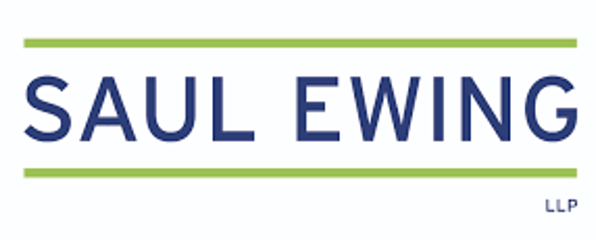
Rapisarda said if anything, it has led to increased communication with his clients and expanded Saul Ewing’s range of solutions.
“It’s the relationships with clients that fuel me,” he said. “I get job satisfaction from resolving unique and often complex issues.”
Rapisarda is co-chair of the firm’s Telecommunications and Digital Infrastructure Practice (TDI), which has helped clients strategize and execute some of the largest tower site builds in the Mid-Atlantic region, assisting with thousands of siting approvals, many in challenging jurisdictions.
“Our problem-solving skills and deep industry experience enable us to handle difficult and high visibility projects,” Rapisarda said. “On behalf of tower companies, we routinely handle due diligence for tower acquisition and tower replacement agreements. We help manage and defend portfolios of leases, owned tower, rooftop and other antenna sites.”
Diversification
Saul Ewing has focused on diversifying its offerings. To recognize that fact, it changed the name of its telecommunications group to Telecommunications & Digital Infrastructure. Today, Saul Ewing attorneys assist FCC-regulated wireless carriers, tower companies, providers of DAS, small cell and fiber, public utilities and communications infrastructure companies.
“We have built solid experience, particularly in fiber, with fiber lines and fiber runs,” Rapisarda said. “We have done work for new clients that involves data centers, dark fiber networks, small cell permits, as well as fiber permits, in the public right-of-way.”
In one recent highlight, Rapisarda handled the land use, permitting, and related federal, state and local regulatory issues for a new 28-mile fiber run into lower Manhattan for a dark fiber provider called GIX. GIX serves Manhattan and New Jersey with diverse routes between major local exchanges. It was the first deployment under the Hudson River in the last 35 years.
In August, Saul Ewing diversified geographically in Southern California, merging with 50-attorney law firm Freeman Freeman & Smiley. The merger added offices in Los Angeles and Orange County. Today, it has 400 attorneys and 18 offices nationwide, serving 40 industries.
The Smiley merger supplements Saul Ewing’s existing practices for real estate, and trusts and estates, which were already strong, according to Rapisarda. Additionally, the merger added fiduciary litigation, which is specialized to California’s regulations.
“The merger strengthened at least two large areas of law for us. It expanded our capabilities for existing clients, including large carriers, large tower companies and middle market tower companies, and also increased the number of potential clients. I recently learned at least three California attorneys likely have experience in telecommunications and digital infrastructure development. I’m still meeting and learning about our new partners, but I’m confident our TDI capabilities will be deeper and stronger as a result of the combination,” Rapisarda said.
Five Lawsuits Across Multiple Courts
Saul Ewing’s recent successes include defending one of its clients, a tower company, against five lawsuits that had been filed against it in state and federal courts by landlords. To date, it has won four dismissals.
“We built a huge wall against this frivolous litigation waged by people really looking to exploit what they see as a big company and deep pockets,” Rapisarda said. “We learned the facts, even visited the sites if we needed to, and then filed the papers. We were aggressive about getting it out.”
In another string of successes, Saul Ewing has zoned and permitted three new cell towers in Washington, D.C., known for strict sightline ordinances. One began as a light pole and grew to a 100-foot monopole.
Saul Ewing is taking advantage of this time to catch up on its training and examine its processes with an eye to increasing efficiencies. The deceleration also provided extra time to educate certain municipalities about zoning ordinances and how they may violate the Telecommunications Act.
“We revamped and updated our land use and zoning and Telecom Act training that we did for Maryland and Virginia, and we’ve been offering that to clients,” Rapisarda said. “It just elevates everybody’s game, and it gets everybody on the same page.”
Conclusion
In reference to the current carrier capex slowdown, Rapisarda said he has seen several capex cycles in the past. In response, he looks at the different issues his clients currently have and how their priorities have shifted concerning their need for outside counsel.
“So, the latest slowdown just seems like another cycle,” he said. “When some types of work drop off, we often see other areas increase, whether from our clients’ always-evolving needs or from new clients with projects that can benefit from our involvement. Everyone needs to get the most bang for their buck right now, so it’s a good time to reassess projects and priorities. If you’re reading this and have any questions or concerns about a development project, regulatory or other legal issue, contact me for preliminary consult and confidential discussion,” Rapisarda stated.
For more information, email Greg Rapisarda at [email protected] or call him at 410-332-8963 (office) or 410-948-1778 (cell).
By J. Sharpe Smith, Inside Towers Technology Editor




Reader Interactions